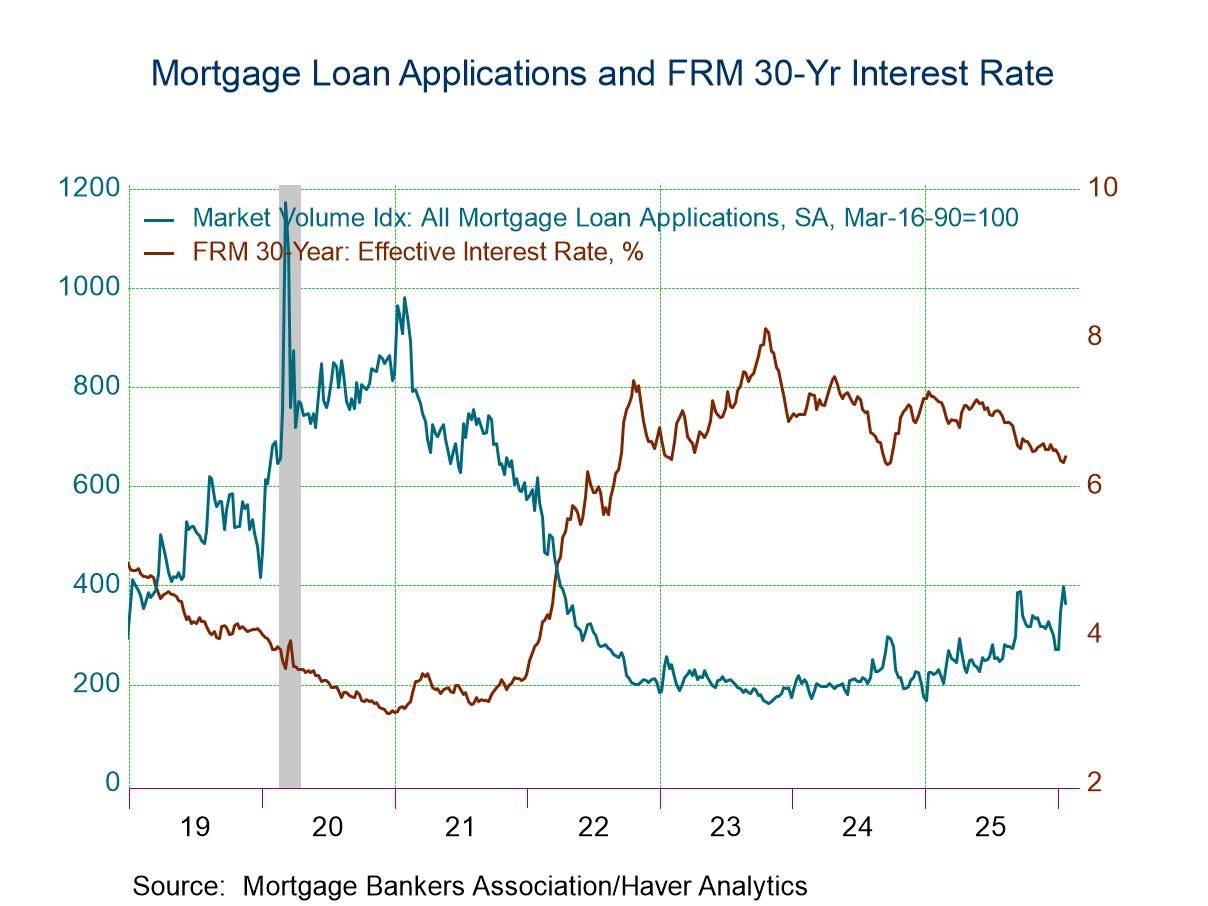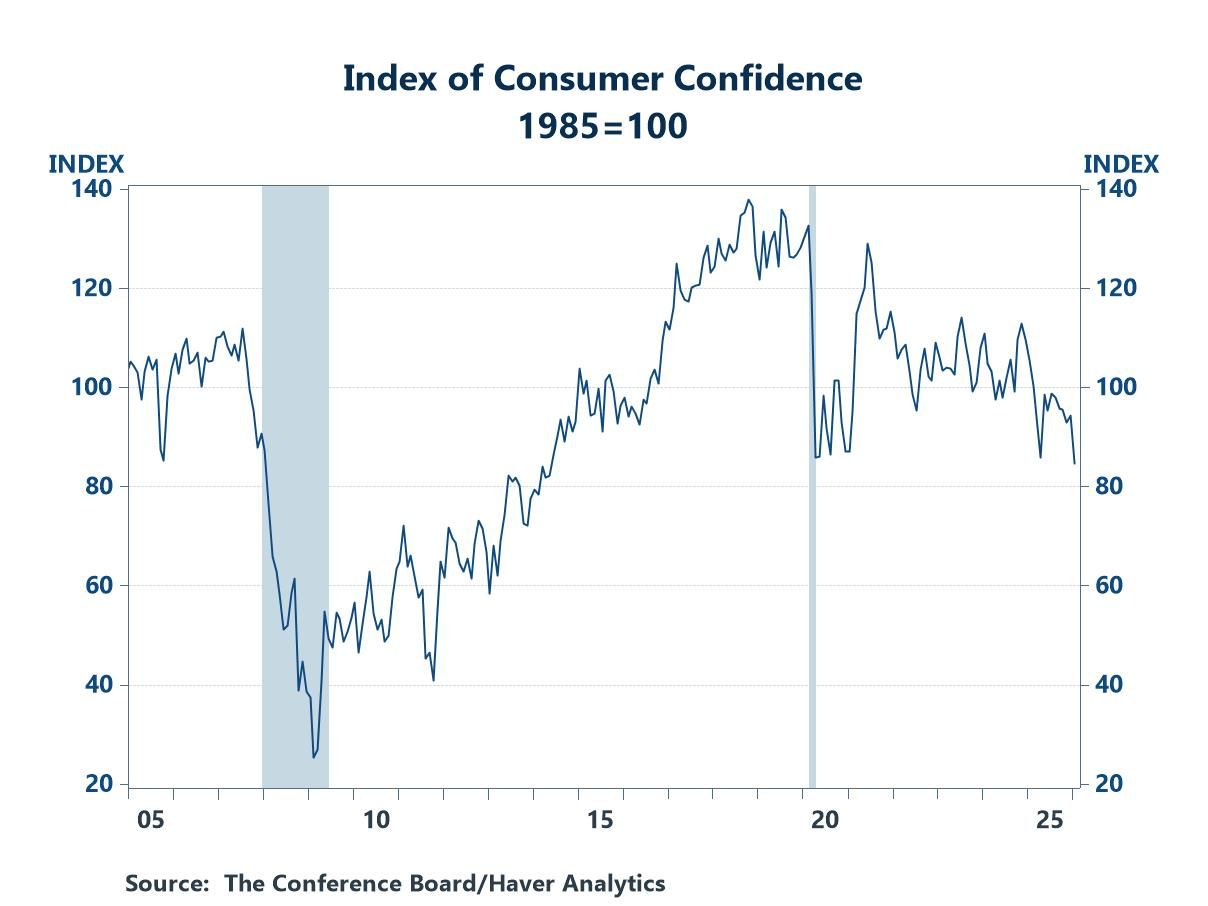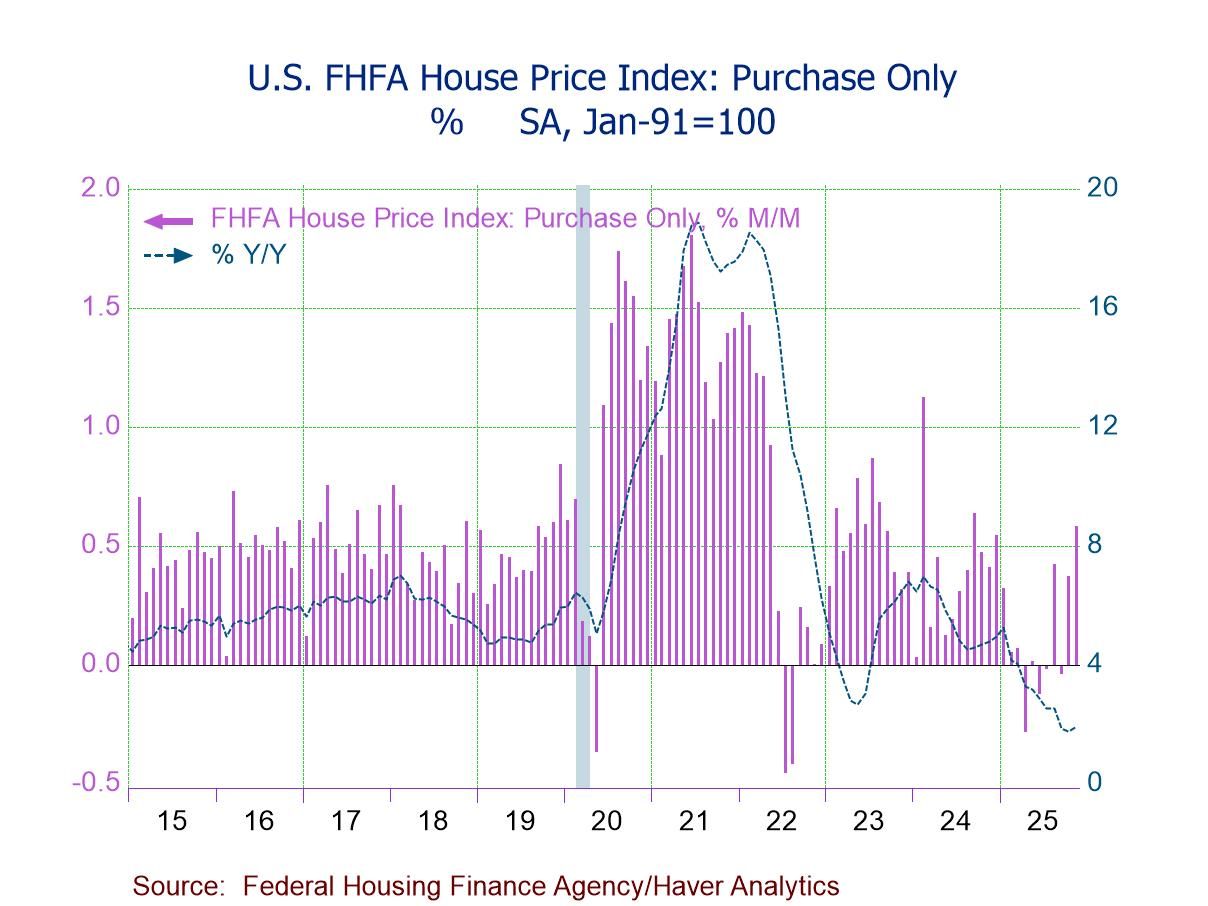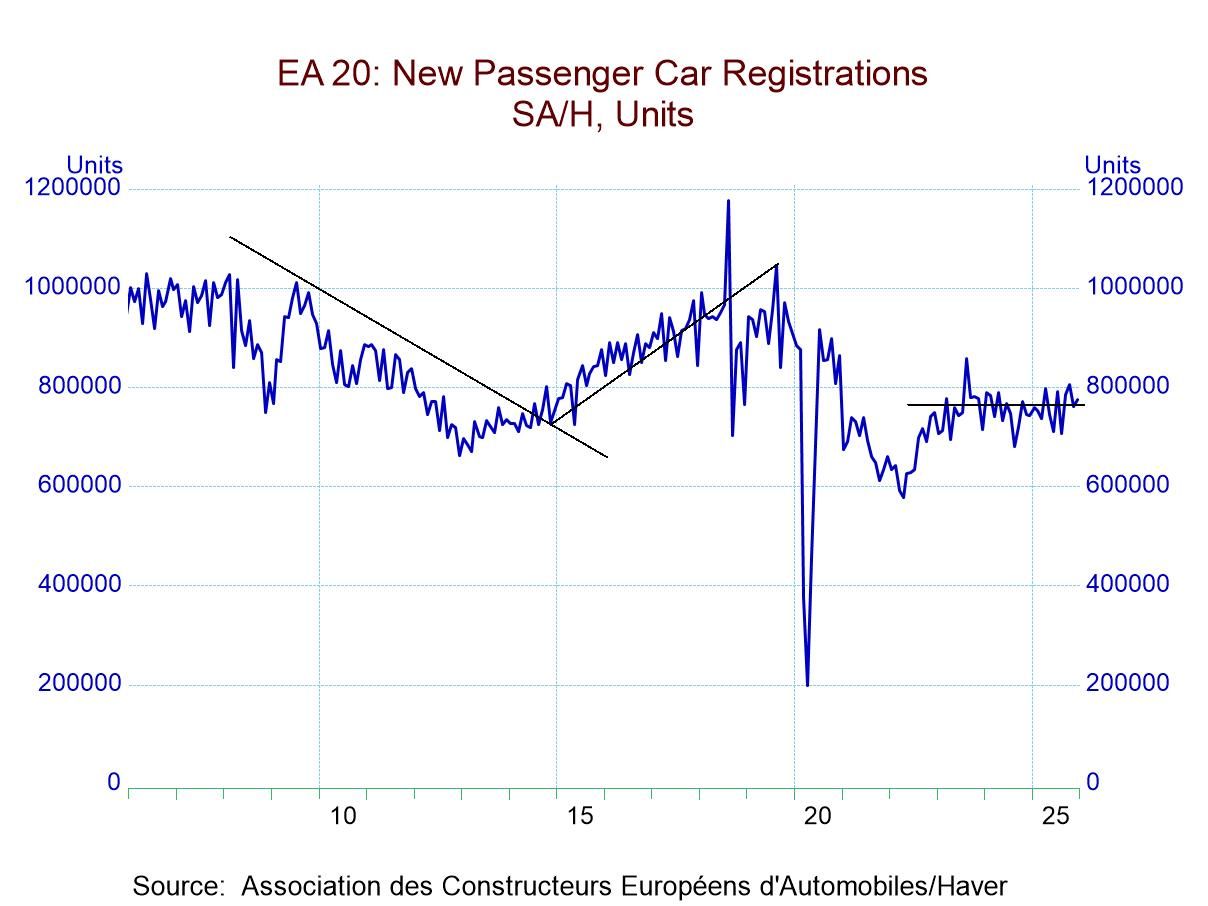 Global| May 25 2011
Global| May 25 2011German consumer climate sees local cooling, Consumer: Consumer thyself?
Summary
The GfK index of consumer climate for Germany has peaked and is headed lower, but at a snail’s pace. The climate reading peaked in March at 6.0 and in June it has receded to 5.5. The early reading index for June is without any details [...]
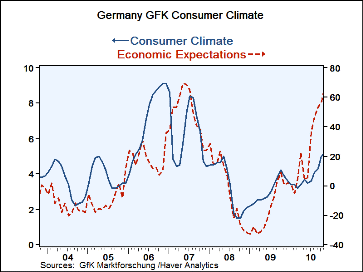 The GfK index of consumer climate for Germany has peaked and is headed lower, but at a snail’s pace. The climate reading peaked
in March at 6.0 and in June it has receded to 5.5.
The GfK index of consumer climate for Germany has peaked and is headed lower, but at a snail’s pace. The climate reading peaked
in March at 6.0 and in June it has receded to 5.5.
The early reading index for June is without any details for its components. But as of May all three component indices were in a state of decline. In May the income sub-index fell the sharpest dropping from 35 to 25.9. The buying propensity index fell to 31.5 from 34.2 and the economic index fell to 46.1 from 47.3. All of the component indices have been declining since December of 2010. The economic and income indices peaked in November while the buying propensity index fell in Dec from a strong November value it rebounded to peak in January and to post its steady fall from that point forward.
German economic sentiment has been getting weaker with weaker underpinnings. The economic data have been strong but there is political turmoil in Germany about the extent to which it is backstopping the whole of the Euro-Area. That ire is mixed with concerns about the viability of other Euro-Area countries and has helped to undercut sentiment on the German economy itself.
As a separate manner consumers in other large Euro-Area countries do not feel as well off as do Germans. The German Climate index stands in its 77th percentile of its ranked queue of values (% count).in June after making several months of declines. By contrast, in Italy where its measure is topical through May, the reading stands in the 58% percentile of its ranked queue of values. In France and the UK where the reporting lags are one month longer still, their indices stand very low, in the bottom 15% and 9%, respectively, of their ordered queue of readings.
Germany that has been a leading economy for the zone is seeing steady erosion in consumer attitudes. Meanwhile, rest of the zone is being buffeted by debt problems that are real. Consumer gauges in the rest of the Zone lag Germany and while Italy is still showing some progress France is not and the UK, an EU member, is laboring under still-weak readings and a still deteriorating trend.
| Germany Consumer Climate Survey GFK | Other EU Members | ||||||
|---|---|---|---|---|---|---|---|
| Climate | Expecations | Propensity to | Consumer/Household Confidence | ||||
| Economic | Income | Buy | Italy:ISAE | France:Insee | UK:GFK | ||
| Jun-11 | 5.5 | ||||||
| May-11 | 5.7 | 46.1 | 25.9 | 31.5 | 106.5 | ||
| Apr-11 | 5.9 | 47.3 | 35.0 | 34.2 | 103.7 | 83.0 | -31.0 |
| Mar-11 | 6.0 | 49.5 | 40.5 | 34.3 | 105.2 | 83.0 | -28.0 |
| Feb-11 | 5.8 | 57.1 | 42.9 | 38.9 | 106.3 | 85.0 | -28.0 |
| Current | Lagged One Month | 2Mo Lag | |||||
| Average | 4.5 | 9.6 | 3.1 | 4.2 | 105.5 | 91.1 | -13.2 |
| Max | 9.1 | 69.5 | 45.2 | 64.4 | 113.5 | 107.0 | 1.0 |
| Min | 1.5 | -32.9 | -20.5 | -41.7 | 95.9 | 77.0 | -39.0 |
| % range | 52.6% | 77.1% | 70.6% | 69.0% | 60.2% | -256.7% | 20.0% |
| Count% | 77.7% | 81.9% | 83.0% | 81.9% | 58.5% | 15.1% | 9.7% |
| % range is current reading as a percentile of Hi/Low range | |||||||
| Count % is current reading ranked as a %-tile among all readings | |||||||
| GFK survey dates from January 2002 | |||||||
Robert Brusca
AuthorMore in Author Profile »Robert A. Brusca is Chief Economist of Fact and Opinion Economics, a consulting firm he founded in Manhattan. He has been an economist on Wall Street for over 25 years. He has visited central banking and large institutional clients in over 30 countries in his career as an economist. Mr. Brusca was a Divisional Research Chief at the Federal Reserve Bank of NY (Chief of the International Financial markets Division), a Fed Watcher at Irving Trust and Chief Economist at Nikko Securities International. He is widely quoted and appears in various media. Mr. Brusca holds an MA and Ph.D. in economics from Michigan State University and a BA in Economics from the University of Michigan. His research pursues his strong interests in non aligned policy economics as well as international economics. FAO Economics’ research targets investors to assist them in making better investment decisions in stocks, bonds and in a variety of international assets. The company does not manage money and has no conflicts in giving economic advice.



